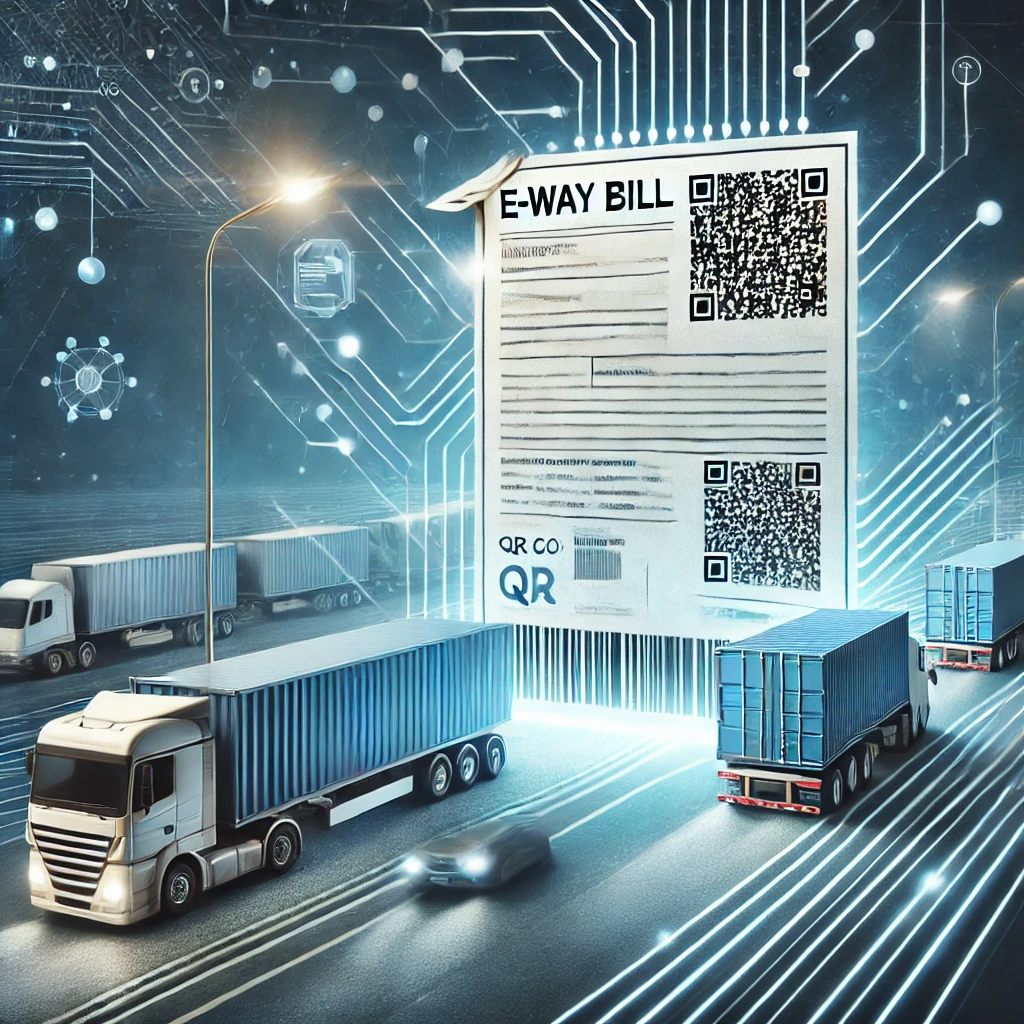E-Way Bill under GST
The Goods and Services Tax (GST) regime has simplified the indirect tax structure in India. One of the key components of GST is the E-Way Bill, which has replaced the earlier system of waybills. In this article, we will delve into the details of E-Way Bills under GST.
What is an E-Way Bill?
An E-Way Bill is an electronic document that must be generated before transporting goods. It contains details such as the goods being transported, their value, and the destination.
Who Needs to Generate an E-Way Bill?
- Supplier – If transporting goods.
- Transporter – If the supplier has not generated it.
- Recipient – If purchasing goods from an unregistered supplier
Cases where registered persons must generate an e-way bill:
- Inter-state supply: Registered persons must generate an e-way bill for inter-state supply of goods, regardless of the value.
- Intra-state supply: Registered persons must generate an e-way bill for intra-state supply of goods, if the value exceeds ₹50,000.
- Supply of goods to SEZ or export: Registered persons must generate an e-way bill for supply of goods to Special Economic Zones (SEZ) or for export.
Cases where registered persons are exempt from generating an e-way bill:
- Supply of exempted goods: Registered persons are exempt from generating an e-way bill for supply of exempted goods, such as agricultural produce, newspaper, Jewellery and certain handicrafts etc.
- 2. Transportation of goods by non-motorized conveyance: Registered persons are exempt from generating an e-way bill for transportation of goods by non-motorized conveyance, such as cycle or manual cart.
Cases where unregistered persons can generate e-way bills :
- Inward supply from unregistered person: When an unregistered person is making an inward supply to a registered person, the unregistered person can generate an e-way bill.
- Supply to SEZ or export: When an unregistered person is making a supply to a Special Economic Zone (SEZ) or exporting goods, they can generate an e-way bill.
- Supply of handicraft goods: When an unregistered person is making a supply of handicraft goods, they can generate an e-way bill.
- Supply of goods by a consignor: When an unregistered person is a consignor and is making a supply of goods, they can generate an e-way bill.
- Supply of goods by a consignee: When an unregistered person is a consignee and is receiving a supply of goods, they can generate an e-way bill.
How unregistered persons can generate e-way bills
1. Using the GSTN portal: Unregistered persons can generate an e-way bill using the GSTN portal (ewaybill.nic.in).
Transporters
Situations where transporters can generate an e-way bill:
When the supplier is unregistered: Transporters can generate an e-way bill on behalf of an unregistered supplier.
- When the supplier is registered but does not have an e-way bill: Transporters can generate an e-way bill if the supplier is registered but does not have an e-way bill.
- When the goods are being transported by road: Transporters can generate an e-way bill for goods being transported by road.
Situations where transporters cannot generate an e-way bill:
When the supplier has already generated an e-way bill: Transporters cannot generate an e-way bill if the supplier has already generated one
When the goods are being transported by rail or air: Transporters cannot generate an e-way bill for goods being transported by rail or air, as these modes of transport have their own documentation requirements.
Conditions for transporters to generate an e-way bill:
The transporter must have a valid GSTIN: The transporter must have a valid GSTIN to generate an e-way bill.
- The transporter must have a valid transporter ID: The transporter must have a valid transporter ID to generate an e-way bill.
- The transporter must have the necessary documents: The transporter must have the necessary documents, such as the invoice and the transport document, to generate an e-way bill.
Note: Part B of e-Way Bill is not required to be filled where the distance between the consigner or consignee and the transporter is less than 50 Kms and transport is within the same state.
Validity of a E-way Bill:
SL.No | Distance within country | Validity period from relevant date• |
1 | Upto 200 km | One day in cases other than Over Dimensional Cargo or multimodal shipment in which at least one leg involves transport by ship |
2 | For every 200 km or thereof part thereafter | One additional day in cases other than Over Dimensional Cargo or multimodal shipment in which at least one leg involves transport by ship |
3 | Upto 20 km | One day in case of Over Dimensional Cargo or multimodal shipment in which at least one leg involves transport by ship |
4 | For every 20 km or part thereof thereafter | One additional day in case of Over Dimensional Cargo or multimodal shipment in which at least one leg involves transport by Ship |
E-Way Bill Generation and Cancellation
- Generation: E-Way Bills can be generated through the GSTN portal or mobile app. https://ewaybillgst.gov.in
- Cancellation: E-Way Bills can be cancelled within 24 hours of generation.
Documents Required for E-Way Bill Generation
- Invoice or bill of supply
- Transporter ID
- Vehicle number
Penalties for Non-Compliance
- ₹10,000 or tax amount (whichever is higher)
- Imprisonment up to 1 year
Introduction of Form ENR-03 in the E-Way Bill System
GSTIN holders were notified of the new feature through an advisory on 15th February 2025. As per this advisory note, form ENR-03 has been launched in accordance with Notification No. 12/2024 dated 10th July 2024. This notification declared the insertion of a legal provision under Rule 138(3) of the CGST Act 2017 to allow URPs willing to generate EWB to register themselves in the EWB portal without GSTIN.
According to the notification, URPs can do so online directly or through facilitation centres by submitting details, like PAN, contact, and address, in the FORM GST ENR—03. The GST Network rolled out this feature on 11th February 2025.
Author
Kavya R
Audit Assistant Muralidhar and Naveena Associates








